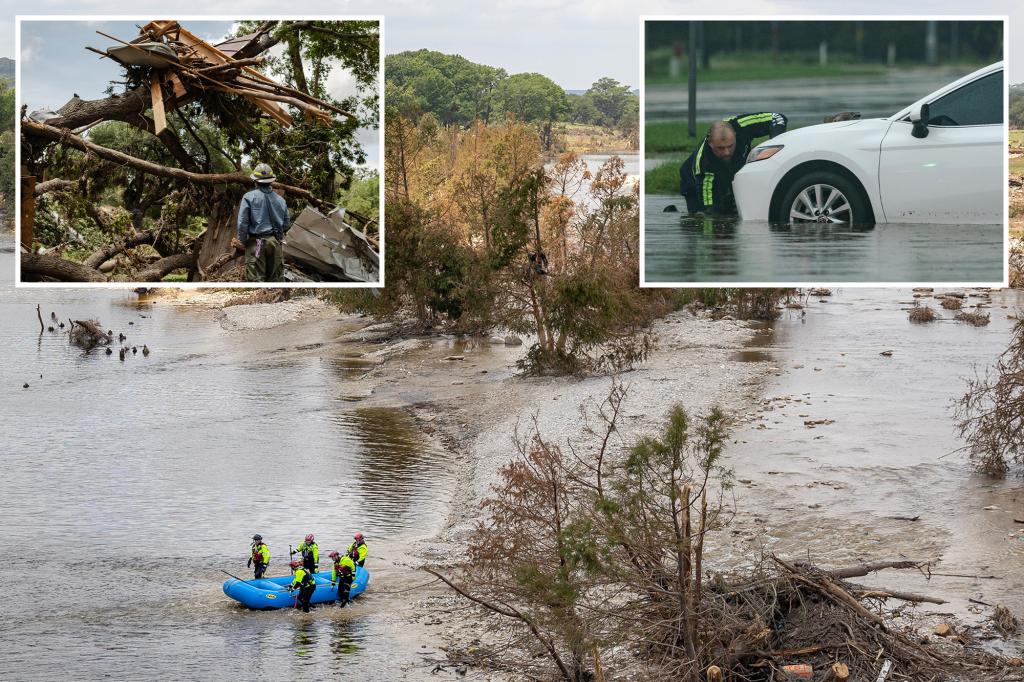North Carolina Governor Advocates for FEMA Shelter Aid Amid Impending Winter Storm
As a severe winter storm looms over North Carolina, with predictions of heavy snow and freezing temperatures, the state’s governor is taking a proactive stance by urging the Federal Emergency Management Agency (FEMA) to extend temporary shelter assistance for vulnerable populations. This appeal comes as the winter weather threatens to exacerbate the challenges faced by those already struggling due to the ongoing impacts of the pandemic and economic instability.
The Importance of Temporary Shelter Assistance
Temporary shelter assistance is crucial in times of natural disasters, particularly for individuals and families who may not have the resources to secure safe accommodation during severe weather conditions. In North Carolina, where winter storms can lead to power outages, road closures, and hazardous living conditions, the need for immediate and adequate shelter becomes paramount.
The governor’s appeal to FEMA is a reflection of the growing concern for those affected by the storm. By extending shelter assistance, the state aims to ensure that no one is left out in the cold, literally and figuratively. The impacts of a winter storm can be devastating, especially for:
- Low-income families who may struggle to pay for heating and shelter.
- The elderly, who are more susceptible to cold-related health issues.
- Individuals experiencing homelessness, who face the highest risks during extreme weather events.
Current Weather Forecast and Expected Impact
The National Weather Service has issued warnings for significant snowfall and icy conditions in various parts of North Carolina. Forecasts indicate that some areas could receive up to a foot of snow, combined with strong winds that could lead to dangerous wind chills. These conditions pose multiple risks:
- Transportation Hazards: Icy roads and reduced visibility can make travel nearly impossible, putting lives at risk.
- Power Outages: Heavy snow accumulation on trees and power lines can lead to widespread outages, leaving many without heat or electricity.
- Health Risks: Prolonged exposure to cold can lead to frostbite and hypothermia, especially among vulnerable populations.
State and Local Response to the Winter Storm
In light of the impending storm, North Carolina’s emergency management teams are working diligently to prepare and respond. The governor has coordinated with local agencies to ensure that shelters are ready to accommodate those in need. This includes:
- Establishing emergency shelters in community centers and schools.
- Collaborating with non-profit organizations to provide food and warm clothing.
- Implementing public safety announcements to inform residents about safety measures and shelter availability.
The collaborative effort between state and local agencies, along with the advocacy for FEMA assistance, underscores the commitment to community safety and support during these challenging times.
The Role of FEMA in Emergency Management
FEMA plays a pivotal role in disaster response and recovery. Their support can significantly enhance the resources available to states during emergencies. By advocating for the extension of shelter assistance, the North Carolina governor is not only prioritizing immediate needs but also emphasizing the importance of federal support in managing natural disasters. FEMA’s involvement can provide:
- Financial Assistance: To help state and local governments manage the costs associated with emergency shelters and services.
- Logistical Support: To ensure that necessary supplies, such as blankets, food, and medical care, are available for those in shelters.
- Expertise and Resources: To aid in the effective management of emergency situations, drawing on past experiences and strategies that have proven successful.
Long-Term Solutions for Winter Preparedness
While immediate shelter assistance is vital, the governor’s advocacy also highlights the need for long-term strategies to improve winter preparedness in North Carolina. Some potential solutions could include:
- Infrastructure Improvements: Investing in road maintenance and snow removal equipment to better handle winter storms.
- Community Education: Increasing awareness about winter preparedness and safety measures for residents.
- Permanent Housing Solutions: Developing more affordable housing options to reduce the number of individuals experiencing homelessness.
By addressing these long-term needs, North Carolina can better equip itself to handle future winter storms and protect its most vulnerable populations.
Conclusion: A Call for Unity and Support
The North Carolina governor’s call for FEMA to extend shelter aid amid the impending winter storm is a crucial step in safeguarding the well-being of residents. As communities brace for the harsh weather, it is essential for individuals, families, and organizations to come together to support one another. Whether it’s offering a warm meal, sharing resources, or simply checking in on neighbors, every effort counts.
As the storm approaches, let us remember the importance of compassion and community. Together, we can weather the storm and emerge stronger, ensuring that no one faces the challenges of winter alone. The proactive measures taken today will pave the way for a more resilient tomorrow, where everyone has access to safety and support in times of need.
See more Your Daily Weather



